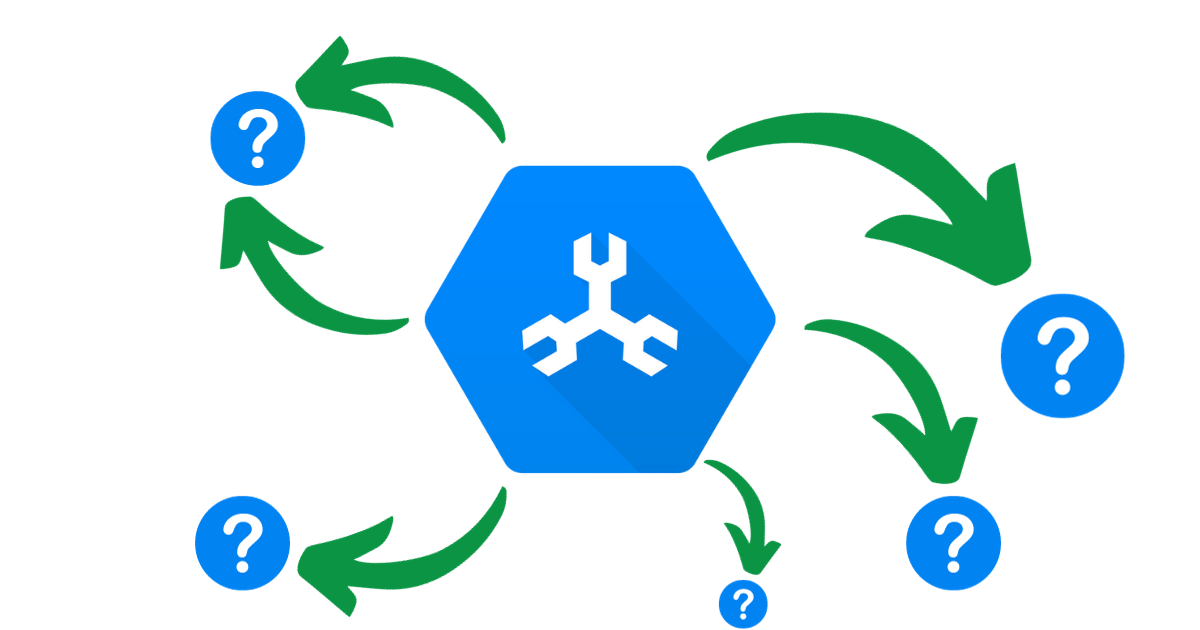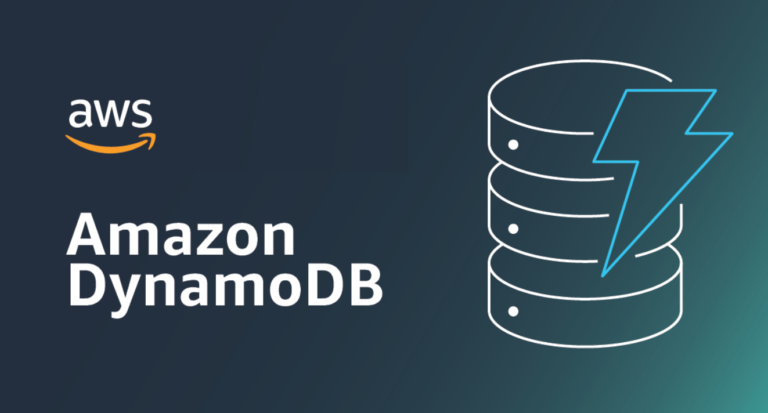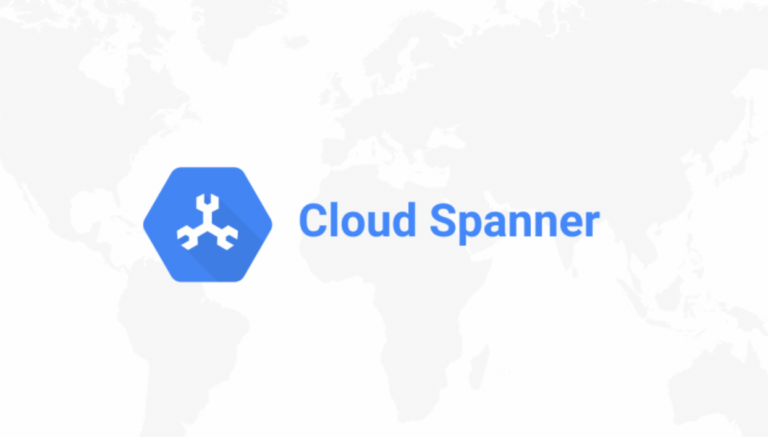7 Cloud Spanner Alternatives

Cloud Spanner is a distributed SQL database offered by Google Cloud, but there are several alternatives in the marketplace that provide similar functionalities for businesses.
When exploring database solutions, it is important to consider these alternatives to find the right fit for your specific needs.
7 Cloud Spanner Alternatives
Choosing the right database solution can have a significant impact on the performance, scalability, and flexibility of your business operations.
- CockroachDB
- Cloudant
- SingleStore
- InfluxDB
- Amazon DynamoDB
- Google Cloud SQL
- Snowflake
Now im going to talk about these indepth so you can understand which one is best for you,
One such alternative is CockroachDB, a flexible database solution that offers a range of features. Unlike Cloud Spanner, CockroachDB can be deployed across multiple cloud providers, giving you the freedom to choose the platform that best suits your requirements.
It also provides granular control over data location in a multi-region setup and can be easily integrated into Kubernetes clusters.
Cloudant, based on the Apache-backed CouchDB project, is another compelling alternative. As an open-source distributed database service, Cloudant offers integrated data management, powerful search capabilities, and advanced analytics features that are ideal for web applications.
Its scalable and flexible nature makes it a popular choice for businesses looking for robust database solutions.
SingleStore, on the other hand, combines transactional and analytical workloads in one database. With its distributed SQL database, SingleStore offers the ability to handle both types of workloads effectively. This makes it a versatile alternative to Cloud Spanner for businesses that require a comprehensive database solution.
InfluxDB is another noteworthy alternative that stands out for its scalability and flexibility in data storage. Designed to handle large amounts of time-series data, InfluxDB offers a scalable architecture that can grow with your business.
Its data model flexibility and database-as-a-service options make it an attractive choice for businesses in need of a powerful and efficient database solution.
For those in search of a managed NoSQL database service, Amazon DynamoDB is a top contender. With its fully managed offering, DynamoDB provides businesses with a reliable and scalable solution for their database needs.
Its cloud-based infrastructure ensures high availability and durability, making it a suitable alternative to Cloud Spanner.
Google Cloud SQL, a fully managed relational database service, is another option worth considering. With its comprehensive set of features, Google Cloud SQL provides businesses with a hassle-free and reliable solution for their relational database needs.
Its seamless integration with other Google Cloud services makes it an attractive choice for businesses already leveraging Google’s ecosystem.
Snowflake is a cloud data platform that specializes in analytics. With its powerful data processing capabilities, Snowflake offers businesses a robust platform for performing complex analytics tasks.
Its cloud-based infrastructure ensures scalability and flexibility, making it an ideal alternative for businesses in need of a data platform tailored for analytics.
When choosing the right alternative to Cloud Spanner for your application, it is crucial to consider your specific requirements and workload.
Each alternative discussed here offers unique features and capabilities that can benefit businesses in different ways. By carefully evaluating these alternatives, you can find the database solution that best aligns with your business goals and objectives.
CockroachDB
CockroachDB is a database solution that offers distinct advantages over Cloud Spanner, including the ability to be deployed across multiple cloud providers and its compatibility with Kubernetes clusters.
Unlike Cloud Spanner, CockroachDB does not rely on explicit hardware, making it more flexible and easier to scale. With CockroachDB, businesses can have more granular control over data location in a multi-region setup, allowing for improved data redundancy and reduced latency.
One of the key features of CockroachDB is its compatibility with Kubernetes clusters. This means that businesses can leverage their existing Kubernetes infrastructure to deploy and manage CockroachDB, simplifying the setup process and reducing operational overhead.
CockroachDB’s built-in automatic data replication and fault tolerance also ensure high availability and reliability, making it suitable for mission-critical applications.
In addition to its deployment flexibility, CockroachDB offers strong consistency and easy horizontal scalability. It supports distributed SQL queries and provides ACID (Atomicity,
Consistency, Isolation, Durability) guarantees, ensuring data integrity and transactional consistency across the distributed database.
With built-in fault tolerance and automatic data rebalancing, CockroachDB can scale horizontally without sacrificing performance or data consistency.
CockroachDB vs. Cloud Spanner
| Feature | CockroachDB | Cloud Spanner |
|---|---|---|
| Deployment Flexibility | Can be deployed across multiple cloud providers | Available only on Google Cloud Platform |
| Compatibility with Kubernetes | Can be easily deployed and managed within Kubernetes clusters | Not explicitly designed for Kubernetes deployments |
| Data Location Control | Offers more granular control over data location in a multi-region setup | Provides automatic data partitioning and replication across regions |
| Scalability | Horizontally scalable with automatic data rebalancing | Horizontally scalable with data distribution across nodes |
| Consistency | Provides strong consistency and ACID guarantees | Provides strong consistency and ACID guarantees |
When considering database solutions for your business, it’s important to evaluate the specific needs and requirements of your application or workload.
CockroachDB offers the flexibility, scalability, and compatibility with Kubernetes clusters that make it a strong alternative to Cloud Spanner.
By harnessing the power of CockroachDB, businesses can achieve high availability, fault tolerance, and scalability while maintaining data integrity and consistency.
Cloudant
Cloudant is an open-source distributed database service that is based on the Apache-backed CouchDB project, offering web applications integrated data management, search, and analytics capabilities.
With its distributed architecture, Cloudant provides scalability and fault tolerance, allowing businesses to handle large amounts of data and ensure high availability.
One notable feature of Cloudant is its integrated data management capabilities. It provides a seamless way to store, retrieve, and update data with ease. Organizations can leverage Cloudant’s robust APIs and query capabilities to efficiently manage their data and ensure optimal performance.
In addition to data management, Cloudant offers powerful search and analytics functionalities. Its built-in full-text search engine allows businesses to perform complex queries and quickly retrieve relevant information.
Cloudant integrates with popular analytics tools, enabling organizations to gain valuable insights from their data and drive data-driven decision-making.
SingleStore
SingleStore is a distributed SQL database that stands out as a cloud spanner alternative by seamlessly combining both transactional and analytical workloads.
Its unique architecture allows businesses to efficiently process real-time transactions while simultaneously running complex analytical queries.
With SingleStore, businesses no longer need separate databases for online transaction processing (OLTP) and online analytical processing (OLAP).
By consolidating these workloads into a single platform, SingleStore simplifies data management and reduces operational overhead.
SingleStore’s distributed architecture enables it to scale horizontally across multiple nodes, ensuring high performance and availability even under heavy workloads.
It provides robust support for ACID (Atomicity, Consistency, Isolation, Durability) transactions, making it suitable for mission-critical applications that require data consistency and reliability.
SingleStore’s analytical capabilities are powered by a columnar storage engine, allowing for efficient processing of complex queries and aggregations. This makes it an ideal choice for businesses that need to derive actionable insights from their data in real-time.
SingleStore offers businesses a comprehensive solution for their data storage and processing needs.
By combining transactional and analytical workloads, it eliminates the complexity of managing multiple databases while providing the performance and flexibility required for modern data-driven applications.
InfluxDB
| InfluxDB Features | Benefits |
|---|---|
| Scalability | Effortlessly handle massive amounts of time-series data |
| Data Model Flexibility | Adapt to evolving data schemas without modifying the database schema |
| Database-as-a-Service | Focus on core operations while InfluxDB handles infrastructure management |
| Integration Capabilities | Seamlessly connect with various data tools and frameworks for enhanced analytics |
InfluxDB is a flexible cloud spanner alternative that offers scalability, data model flexibility, and convenient database-as-a-service options.
Designed for handling time-series data, InfluxDB excels in managing high volumes of data with varying data schemas, making it an ideal choice for applications that require real-time analytics and monitoring.
One of the key strengths of InfluxDB is its scalability. It can effortlessly handle massive amounts of data, enabling businesses to easily store and analyze continuous streams of time-series data.
Whether it’s IoT sensor data, application metrics, or financial transactions, InfluxDB can store, index, and query data efficiently, ensuring that critical insights can be obtained in real-time.
Another advantage of InfluxDB is its data model flexibility. Unlike traditional relational databases, InfluxDB allows for dynamically changing data schemas, which is crucial for time-series data where fields and tags can evolve over time.
This flexibility enables developers to adapt to changing data requirements without needing to modify the underlying database schema, saving time and effort.
Database-as-a-Service and Integrations
Additionally, InfluxDB offers a convenient Database-as-a-Service (DBaaS) option, allowing businesses to focus on their core operations without worrying about database management and infrastructure maintenance.
With InfluxDB Cloud, users can easily provision and scale their databases, while enjoying automatic backups, monitoring, and security features.
Moreover, InfluxDB integrates seamlessly with various tools and frameworks commonly used in the data ecosystem.
From visualization platforms like Grafana to messaging systems like Apache Kafka, InfluxDB provides extensive integration capabilities, enabling businesses to connect their data pipelines and extract meaningful insights from their time-series data.
Amazon DynamoDB
Amazon DynamoDB is a popular choice for businesses seeking a managed NoSQL database service as an alternative to Cloud Spanner.
With its scalable, fully managed infrastructure, DynamoDB offers an efficient and flexible solution for storing and retrieving large volumes of data.
Unlike traditional relational databases, DynamoDB is schema-less, allowing for easy adaptation to changing data requirements.
One of the key features of DynamoDB is its ability to automatically replicate data across multiple availability zones, ensuring high availability and durability.
This distributed nature of DynamoDB makes it suitable for applications with global user bases and high traffic demands.
DynamoDB offers built-in security features, including fine-grained access control and encryption at rest, providing peace of mind for businesses concerned about data protection.
Google Cloud SQL
Google Cloud SQL is a fully managed relational database service that serves as a reliable alternative to Cloud Spanner.
It offers businesses a scalable and flexible solution for their database needs. With its managed service offering, Google Cloud SQL takes care of the infrastructure setup, maintenance, and management, allowing businesses to focus on their applications and data.
One of the key advantages of Google Cloud SQL is its seamless integration with other Google Cloud services.
This allows businesses to leverage the full potential of the Google Cloud ecosystem, including services like BigQuery for analytics, Cloud Storage for data storage, and Cloud Functions for serverless computing.
Features and Benefits of Google Cloud SQL:
| Feature | Google Cloud SQL |
|---|---|
| Managed Service | Yes |
| Horizontal Scaling | Yes |
| Data Replication | Yes |
| Integration with Google Cloud Services | Yes |
| Encryption at Rest and in Transit | Yes |
- High Availability: Google Cloud SQL ensures high availability with automatic failover and replication, reducing the risk of downtime and data loss.
- Scalability: It offers horizontal scaling capabilities to handle growing workloads and allows businesses to easily adjust resources as needed.
- Security: Google Cloud SQL provides advanced security features, including encryption at rest and in transit, IAM integration, and automatic backups.
- Flexibility: It supports both MySQL and PostgreSQL database engines, giving businesses the flexibility to choose the one that best suits their requirements.
Google Cloud SQL is a powerful and reliable fully managed relational database service that offers businesses a seamless alternative to Cloud Spanner.
With its robust features, scalability, and tight integration with other Google Cloud services, it provides businesses with the flexibility and efficiency needed to drive their applications and data forward.
Snowflake
Snowflake is a cloud data platform that offers robust analytics capabilities, making it a suitable alternative to Cloud Spanner.
With Snowflake, businesses can leverage the power of analytics to gain valuable insights from their data.
Whether it’s analyzing customer behavior, optimizing marketing campaigns, or making data-driven decisions, Snowflake provides the tools and infrastructure needed to carry out these tasks efficiently and effectively.
One of the key advantages of Snowflake is its scalability. As a cloud-based platform, Snowflake can easily handle large volumes of data and scale resources up or down as needed.
This flexibility ensures that businesses have the computing power required to perform complex analytics tasks without the limitations of on-premises infrastructure.
In addition to scalability, Snowflake also offers data model flexibility. It supports both structured and semi-structured data, allowing businesses to work with a wide variety of data types.
This versatility enables organizations to explore and analyze data in its raw form, uncovering hidden insights and patterns that traditional databases may overlook.
Data Warehousing and Sharing
Furthermore, Snowflake provides advanced data warehousing capabilities, allowing businesses to store and organize their data in a structured manner. This makes it easier to retrieve and analyze data efficiently, improving the performance and productivity of analytics workflows.
Additionally, Snowflake offers enhanced data sharing functionalities. Organizations can securely share data with internal teams, partners, or clients, facilitating collaboration and accelerating decision-making processes. This feature is particularly valuable for businesses that need to share data across multiple departments or with external stakeholders.
Snowflake Vs Cloud Spanner
When considering alternatives to Cloud Spanner, businesses should evaluate the specific needs and requirements of their analytics workflows.
Snowflake offers a comprehensive cloud data platform that prioritizes scalability, data model flexibility, and advanced analytics capabilities.
By leveraging Snowflake’s offerings, businesses can unlock the full potential of their data and drive informed decision-making.
| Features | Snowflake | Cloud Spanner |
|---|---|---|
| Scalability | Highly scalable, can handle large volumes of data | Scalable, but limited by hardware constraints |
| Data Model Flexibility | Supports structured and semi-structured data | Primarily designed for structured data |
| Data Warehousing | Advanced data warehousing capabilities | Data warehousing capabilities available |
| Data Sharing | Secure data sharing with internal teams and external stakeholders | Data sharing capabilities available |
Choosing the Right Alternative for Your Application
When considering alternatives to Cloud Spanner, it is important to carefully evaluate the specific needs and requirements of your application or workload. Each alternative has its unique features and capabilities that may better suit your business.
For example, CockroachDB offers a flexible solution that can be deployed across multiple cloud providers without relying on explicit hardware. Its granular control over data location in a multi-region setup and easy deployment in Kubernetes clusters make it a reliable choice.
If you prefer an open-source solution, Cloudant, based on the CouchDB project, provides integrated data management, search, and analytics features that are ideal for web applications.
On the other hand, SingleStore specializes in handling both transactional and analytical workloads effectively, ensuring optimal performance for your business.
Other options to consider include InfluxDB, known for its scalability and data model flexibility, Amazon DynamoDB, which offers a managed NoSQL database service, and Google Cloud SQL, a fully managed relational database service.
Snowflake is another alternative worth considering, as it serves as a cloud data platform specifically designed for analytics.
Ultimately, the choice of the right alternative depends on various factors such as scalability, security, data model flexibility, and specific database-as-a-service options.
By carefully evaluating your application’s needs and workload requirements, you can make an informed decision that best suits your business.
FAQ
How does Google Cloud Bigtable compare to Cloud Spanner as an alternative?
While both Google Cloud Bigtable and Cloud Spanner are distributed databases, Cloud Spanner offers transactional consistency across multiple regions, while Bigtable is optimized for high throughput and low latency for large-scale data processing and analytics.
What are the advantages of using Amazon Aurora as an alternative to Cloud Spanner?
Amazon Aurora provides a scalable and highly available relational database service with compatibility for MySQL and PostgreSQL. It offers the benefits of automatic scaling, automated backups, and built-in replication, making it a reliable alternative to Cloud Spanner for certain use cases.
Can Microsoft Azure Cosmos DB be considered as a viable alternative to Cloud Spanner?
Yes, Microsoft Azure Cosmos DB is a globally distributed, multi-model database service that provides similar scalability and global consistency as Cloud Spanner. It supports multiple APIs, including SQL, MongoDB, Cassandra, and Gremlin, making it a versatile alternative for different application requirements.
How does CockroachDB compare to Cloud Spanner as a distributed database alternative?
CockroachDB is an open-source distributed SQL database that offers strong consistency, horizontal scalability, and fault tolerance. While both CockroachDB and Cloud Spanner provide similar features, CockroachDB can be self-hosted on-premises or on any cloud provider, offering flexibility in deployment options compared to Cloud Spanner’s exclusive availability on Google Cloud Platform.



